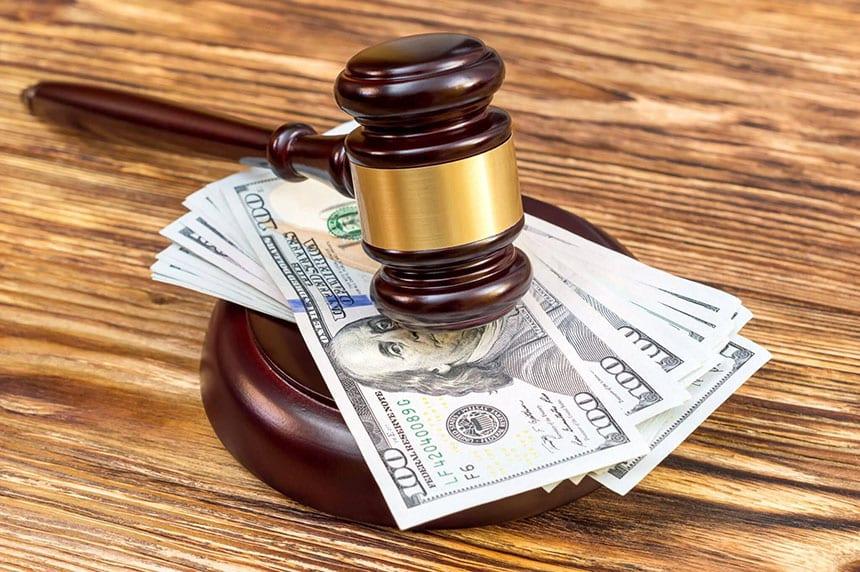At one point or another, most attorneys will need to set an hourly rate, whether for a complex criminal case or even for something as simple as drafting a contract. During this process, the first question typically asked is, “what is the average lawyer hourly rate?”
Below, we’ll explain the key things you need to know about lawyer costs and billing practices.
How Much Should a Lawyer’s Hourly Rate Be?
Lawyers consider various factors when setting their fees. These rates vary depending on the practice area and geographic location. For instance, attorneys who are well-known in a certain area of the law may charge more hourly lawyer prices than those who aren’t. An attorney hourly rate may also differ based on what the case entails and how much time the lawyer can realistically commit.
Clients can expect to pay anywhere from $50 to thousands per hour. For example, lawyers practicing in smaller towns and cities generally charge less, while those practicing in heavily populated, urban areas tend to be more expensive. Generally speaking, the more complicated the case and the more experienced the attorney, the higher the lawyer rate per hour.
Hourly Vs. Flat Fees
The most common forms of lawyer costs are divided into three categories: attorney hourly rate fees, flat rate fees, and contingency fees. With these fees, the client is charged for the attorney’s time only.
Hourly billing, the most common fee arrangement, means exactly what its name implies. Namely, the lawyer and the legal staff will charge a specific hourly rate for the work done during a client’s case.
With flat-flee billing, a client will pay a specified retainer amount for a particular type of case. No matter how long the case takes or what complications are involved, the fee doesn’t change. Examples of cases eligible for flat fee billing include uncontested divorces, bankruptcy filings, immigration, trademarks, patents, and wills.
In addition to these fees, other costs may be associated with a client’s legal representation. This includes the cost of filing papers with the court or sending correspondence to an opposing party. Sometimes, attorneys may also require money down as a retainer.
Factors That Impact Lawyer Hourly Rates
The lawyer rate per hour will depend on multiple factors, which may include:
The reputation of the lawyer and/or firm lawyer prices
The location and size of the law firm
The billing method used by the attorney
The complexity of the case
The lawyer’s experience level
Total cases handled by the lawyer
Travel costs
How to Calculate Your Hourly Rate

There are a few methods for choosing the best hourly lawyer prices for yourself and your firm, which includes:
Calculating your total number of billable hours
Dividing your cost of business by the number of billable hours expected for the year
Seeing how your rate compares to current market rates
Streamline Invoicing & Billing With MyCase
Maintaining accurate records of your work should be a priority to increase overall billing efficiency—from hourly lawyer prices to flat fees.
Legal billing software can increase the productivity of billable time in the following ways:
1. Time tracking
Legal billing and time tracking software allow lawyers in your firm to track their billable time from any internet-enabled device using multiple timers. This simplifies the process of entering billable time—from any location.
2. Auto reconciliation
Your law firm can also increase billing efficiency by automating the billing process. Once you’ve sent an invoice to a client, an invoicing automation solution helps by automatically sending email or texting invoice reminders at an interval that works best for your firm. This streamlines the process of tracking each invoice, sending out reminders manually, and collecting payment.
3. Activity tracking
Attorneys are notorious multitaskers who often jump from one task to another. Legal billing software offers activity trackers that automatically keep tabs on all billable and non-billable actions you’ve performed on any given day—whether you’ve logged a time entry for them or not. This makes it easy to review and record time for hourly lawyer costs and billable activities that would otherwise slip through the cracks at the end of your day.
Interested in increasing legal payment collection and exploring how MyCase can streamline your hourly billing process? Download our law firm profitability guide and start your free trial today!
About the author

Nichole NaoumSenior Content Writer

